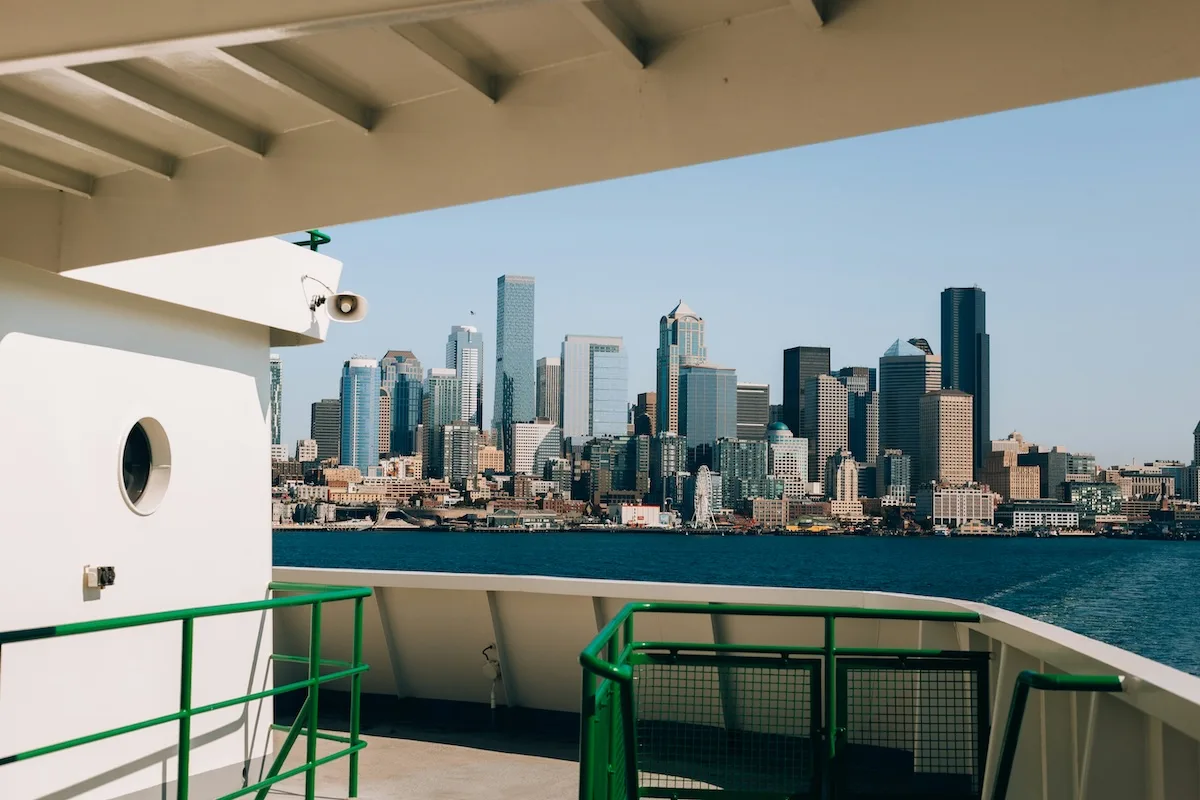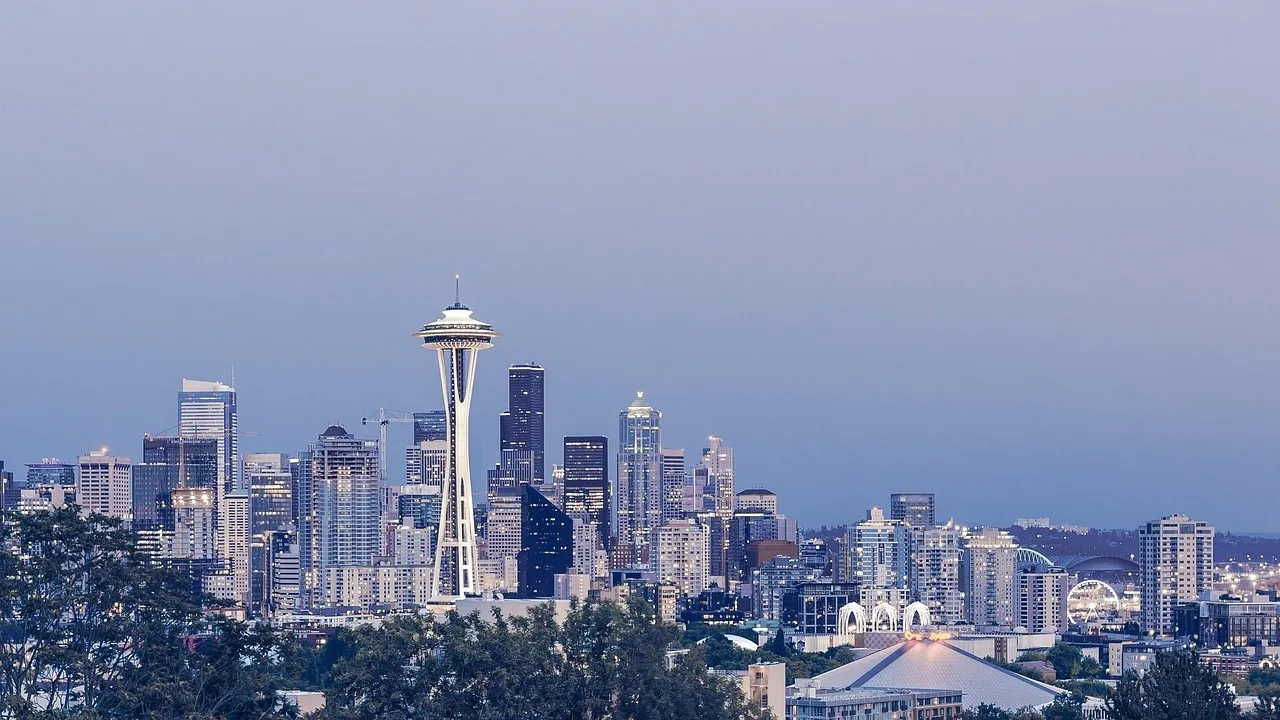The average rent in Seattle is above the national average, but the city is experiencing slower rent growth compared to other US markets. See Seattle costs, trends, and tips to help you rent smarter.

Is Seattle affordable for renters in 2026?
Seattle is not the most affordable city in the US for renters this year. Its average rent prices are higher than the national average. However, affordability really depends on your particular situation: your income, the number of bedrooms you need, and what you prioritize in your home (commute time, amenities, etc).
Known for its tech-driven economy, waterfront neighborhoods, and year-round coffee culture, Seattle has built a reputation for higher-than-average housing costs. But there’s good news: while Seattle rents remain above the national average, this city has seen slight annual declines, giving renters a bit more breathing room.
This guide covers what you need to know about Seattle’s affordability right now, how local rent prices compare to national trends, which neighborhoods offer better value, and practical strategies to help you find your next home.
How much is rent in Seattle?
Seattle’s average rent prices have dipped slightly over the past year, even as they remain higher than national averages.
According to Zumper’s National Rent Report:
- Median 1-bedroom rent: around $1,960 (down 1.0% year-over-year)
- Median 2-bedroom rent: around $2,750 (down 1.1% year-over-year)
National medians for comparison:
- 1-bedroom: $1,520
- 2-bedroom: $1,905
Seattle renters are paying about 29% more for a 1-bedroom and 44% more for a 2-bedroom than the national average.
Why Seattle’s rent prices are trending down
Several factors are contributing to the modest rent decreases in Seattle:
- Increased housing supply in certain neighborhoods due to new apartment developments
- Shifts in demand as some residents move to more affordable nearby cities
- Seasonal fluctuations where summer leasing competition has softened slightly compared to previous years
While the year-over-year drop is small, it signals a cooling from the steep rent hikes of the early 2020s.
How Seattle compares to other expensive cities
Seattle is still one of the priciest rental markets in the United States, but it’s not at the top. Cities like New York, San Francisco, and Boston continue to have significantly higher rents. However, Seattle rents surpass those in many other West Coast cities, including Portland and Sacramento.
For renters relocating from high-cost markets like San Francisco, Seattle can feel like a relative bargain. For those coming from smaller metros or the Midwest, the cost jump can be significant.
The affordable neighborhoods in Seattle
If you’re looking for value without sacrificing location, some neighborhoods offer lower-than-average rents while still providing access to transit, amenities, and green space.
Neighborhoods with more affordable options include:
- Northgate: Offers newer apartment buildings and quick transit access to downtown via light rail
- Rainier Valley: Diverse community with a range of housing types and generally lower rents
- Beacon Hill: Close to downtown with a quieter, residential feel
- Lake City: Farther north, but with larger units and better price per square foot
Tips for renting affordably in Seattle
Start your search early
Begin looking 6–8 weeks before your target move-in date. Competition can still be high in popular areas.
Consider flexible move-in dates
Moving mid-month or during slower seasons (late fall and winter) can help you negotiate better rates.
Look beyond downtown
Neighborhoods just outside central Seattle often offer substantial savings and more space.
Use Zumper tools
Set alerts for your preferred neighborhoods and budget so you can apply instantly when a good listing appears. Start your search today.
Cost of living beyond rent
Affordability in Seattle isn’t just about rent, it’s also about everyday expenses. Here’s what else to expect:
- Utilities: Around $180–$220 per month for a typical apartment
- Public transit: ORCA card monthly pass starts at about $117
- Groceries: About 15% above the national average
- Dining out: A casual restaurant meal averages $20–$25
FAQs about Seattle affordability
How much does it cost to rent in Seattle?
It will cost an average of $1,960 to rent a 1-bedroom apartment in Seattle, and $2,750 for a 2-bedroom apartment.
Is Seattle more affordable now than last year?
Yes. Median 1- and 2-bedroom rents are each down just over 1% compared to 2024.
How much do you need to make to live in Seattle?
A common guideline is to spend no more than 30% of your income on rent. For a $1,960 1-bedroom, that’s about $78,400 annually.
Which Seattle neighborhoods have the cheapest rents?
Northgate, Rainier Valley, Beacon Hill, and Lake City tend to offer lower rents compared to citywide medians.
Does Seattle have rent control?
No. Washington state law prohibits rent control, so rent prices are determined by the market.
Conclusion
Seattle’s affordability picture is mixed: rents are still higher than the national average, but modest annual declines give renters more leverage than in previous years. By expanding your neighborhood search, timing your move strategically, and using tools like Zumper to act quickly, you can find a rental that works for your budget.
Seattle may not be the cheapest city, but with the right strategy, it can still be a place where you thrive.
Start your search and explore available Seattle rentals today.



